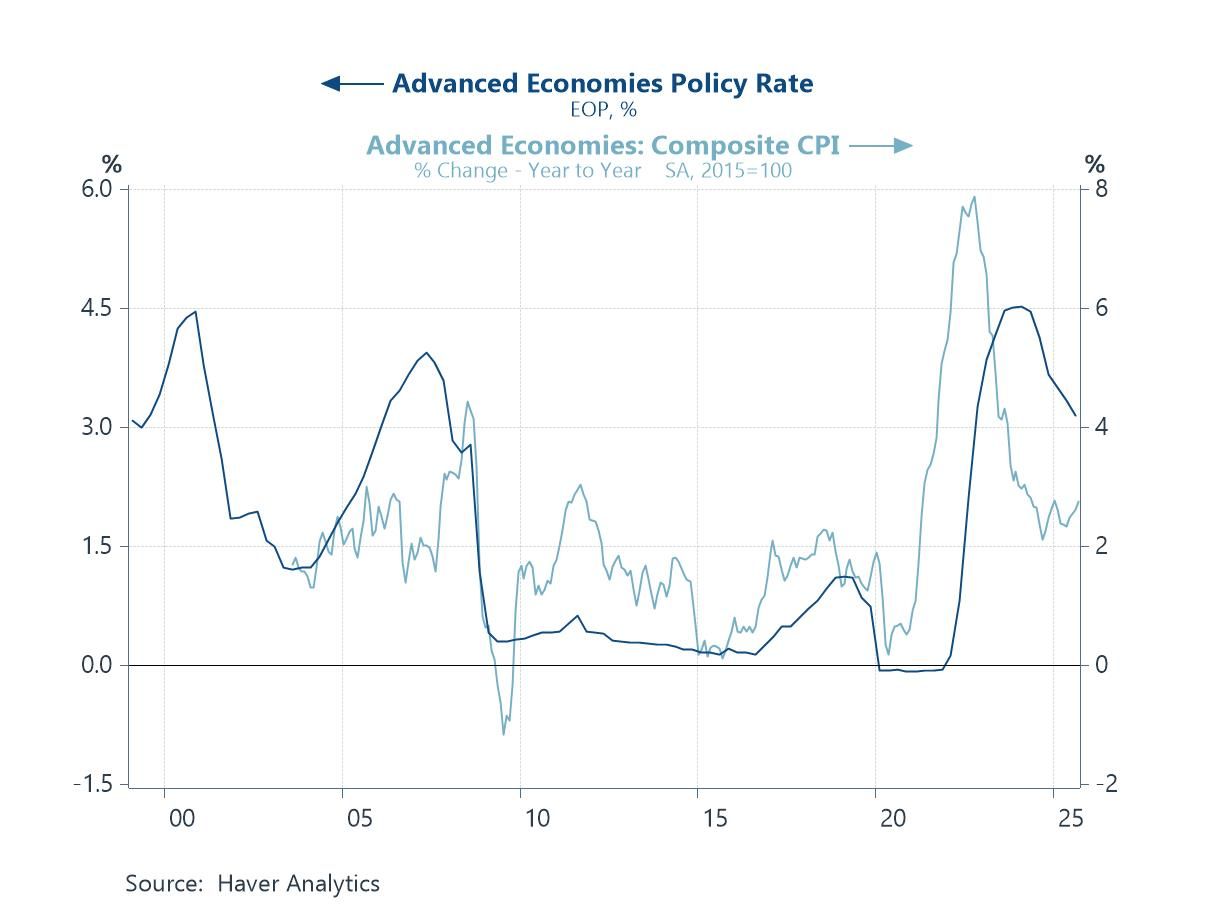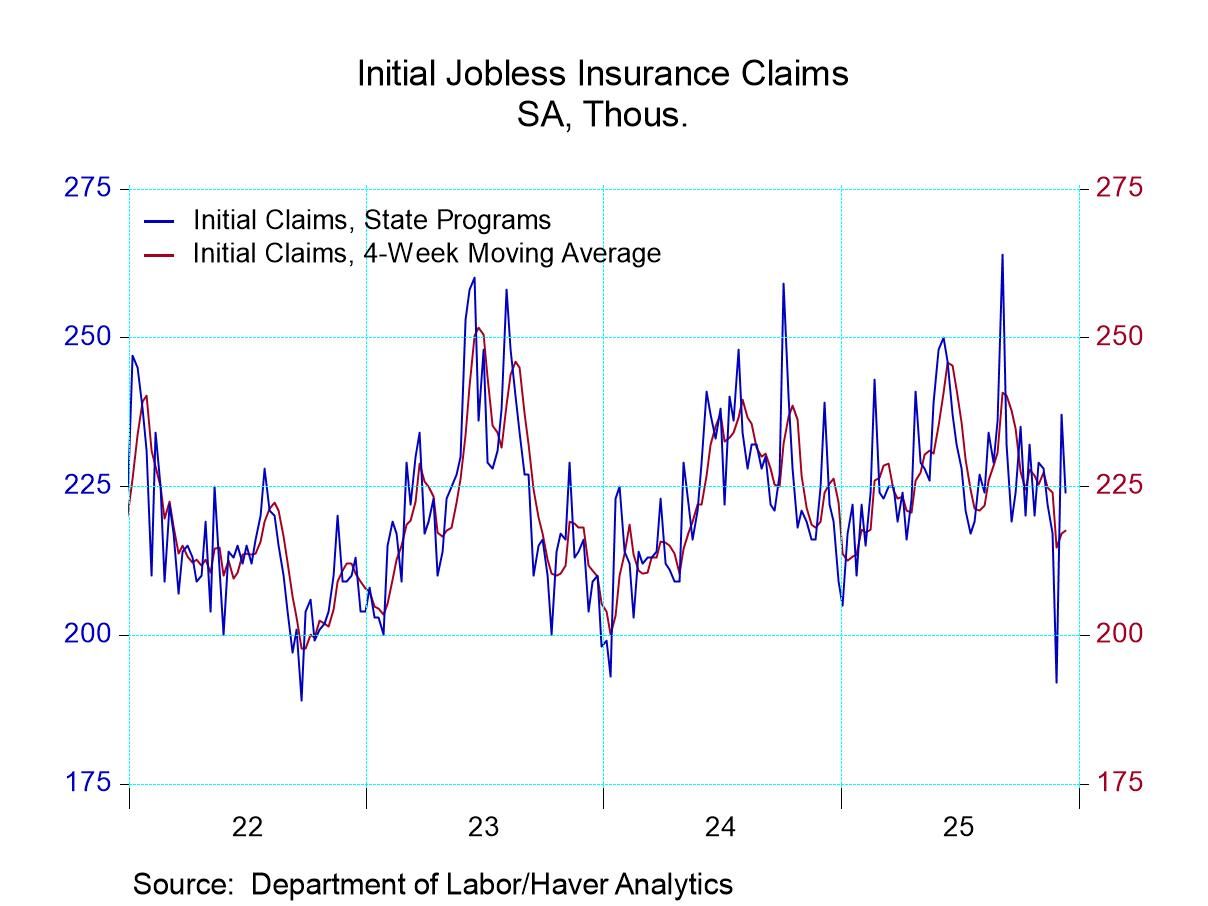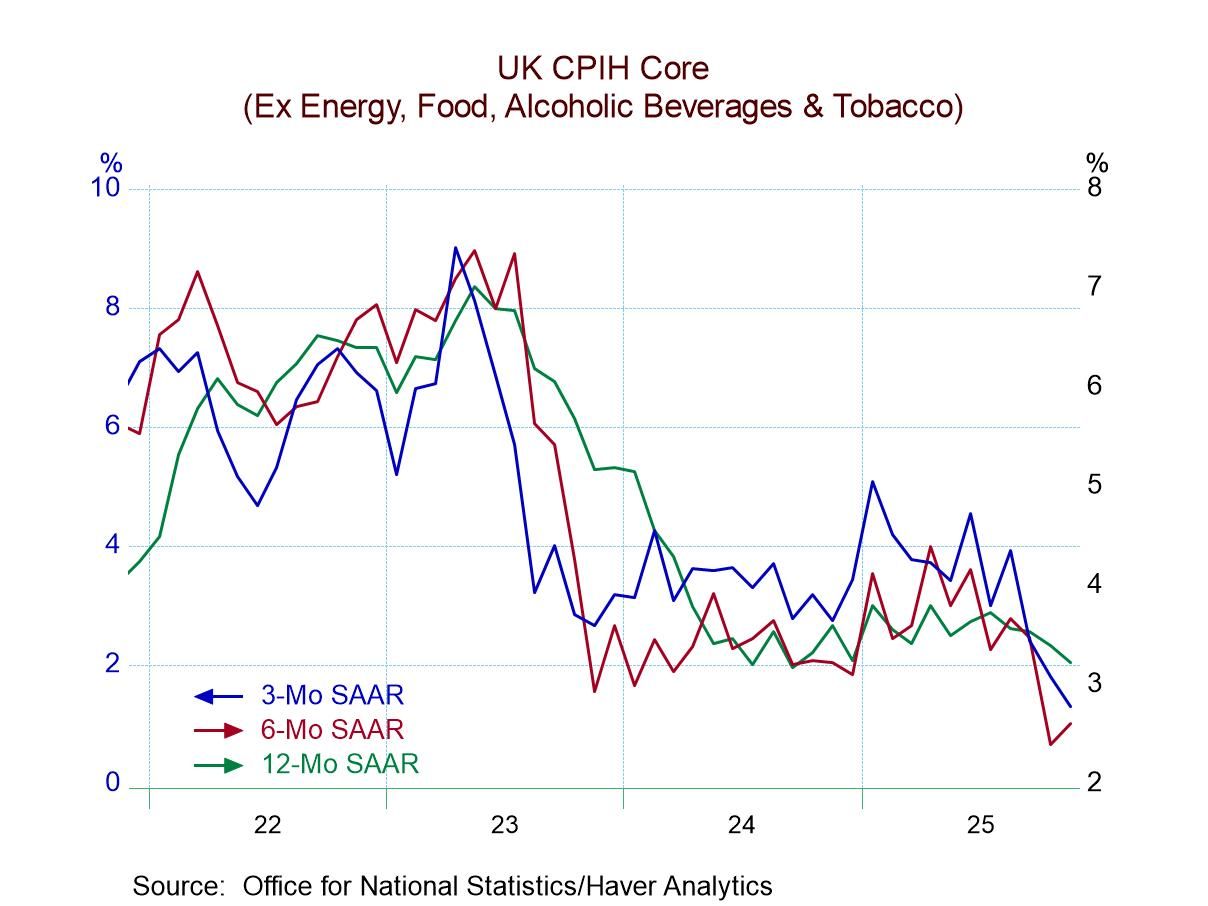 Global| Oct 20 2008
Global| Oct 20 2008Philadelphia Fed Index Lowest Since 2001
by:Tom Moeller
|in:Economy in Brief
Summary
Coincident with the recent turmoil in the financial market, last week the Philadelphia Federal Reserve Bank reported that its October Index of General Business conditions in the manufacturing sector fell to -37.5 its lowest level [...]
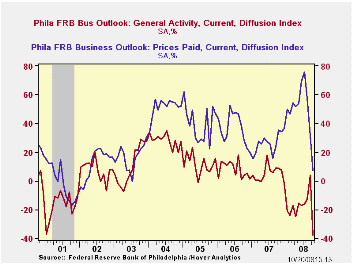
Coincident with the recent turmoil in the financial market, last week the Philadelphia Federal Reserve Bank reported that its October Index of General Business conditions in the manufacturing sector fell to -37.5 its lowest level since 2001. The m/m deterioration in the index from a level of +3.8 in September was a record for the series. A reading of -10 had been expected for this month.
During the last ten years there has been a 61% correlation between the level of the Philadelphia Fed Business Conditions Index and the three-month growth in factory sector industrial production. There has been a 43% correlation with q/q growth in real GDP.
The Philadelphia Fed constructs a diffusion index for total business activity and each of the sub-indexes. The business conditions index reflects a separate survey question.
Amongst the sub-indexes, the new orders index led this month's weakness with a 36.1 point m/m drop to its lowest level since the recession of 1990. Unfilled orders fell 17.3 points to the lowest level since early 1996. The shipments index also fell sharply by 21.4 points to its lowest level since 2001. 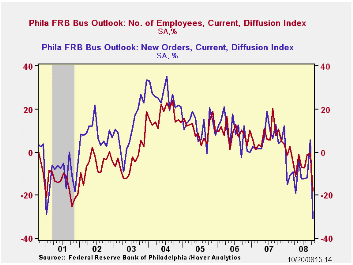
The employment index fell a sharp 17.5 points to the lowest level since the recession year of 2001. Twenty eight percent of respondents expected to reduce employment levels, the highest since 2001, while only 10.2% expected to raise them. During the last ten years there has been a 79% correlation between the index level and the m/m change in manufacturing sector payrolls.
The prices paid index fell out of bed. The 24.3 point drop followed a 26.0 decline during September and left the index level at its lowest since 2003. Month-to-month declines of these magnitudes rival those during the mid-1970s. During the last ten years there has been a 67% correlation between the prices paid index and the three-month growth in the intermediate goods PPI. There has been an 82% correlation with the change in core intermediate goods prices.
The separate index of expected business conditions in six months also fell by the largest amount, m/m, since the 1970s. The expectations index for new orders turned negative for second time this year and for shipments the index was at its lowest since 1979. The expectations index for employment fell 31.7 points to the lowest level since 1990. The expected prices paid figure fell a sharp 27.2 points to its lowest level since 2001.
The latest Business Outlook Survey from the Federal Reserve Bank of Philadelphia can be found here.
The Geography of Research and Development Activity in the U.S. from the Federal Reserve Bank of Philadelphia can be found here.
| Philadelphia Fed (%) | October | September | October '07 | 2007 | 2006 | 2005 |
|---|---|---|---|---|---|---|
| General Activity Index | -37.5 | 3.8 | 6.0 | 5.1 | 8.1 | 11.5 |
| Prices Paid Index | 7.2 | 31.5 | 25.8 | 26.4 | 36.6 | 40.1 |
Tom Moeller
AuthorMore in Author Profile »Prior to joining Haver Analytics in 2000, Mr. Moeller worked as the Economist at Chancellor Capital Management from 1985 to 1999. There, he developed comprehensive economic forecasts and interpreted economic data for equity and fixed income portfolio managers. Also at Chancellor, Mr. Moeller worked as an equity analyst and was responsible for researching and rating companies in the economically sensitive automobile and housing industries for investment in Chancellor’s equity portfolio. Prior to joining Chancellor, Mr. Moeller was an Economist at Citibank from 1979 to 1984. He also analyzed pricing behavior in the metals industry for the Council on Wage and Price Stability in Washington, D.C. In 1999, Mr. Moeller received the award for most accurate forecast from the Forecasters' Club of New York. From 1990 to 1992 he was President of the New York Association for Business Economists. Mr. Moeller earned an M.B.A. in Finance from Fordham University, where he graduated in 1987. He holds a Bachelor of Arts in Economics from George Washington University.



